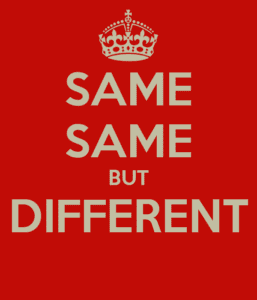If you’re doing business in China, you might be tempted to ask your lawyer to step in and help you negotiate with your Chinese counterpart. However, this could be a big mistake that could jeopardize your deal and your relationship. In this post, I explain how lawyers play a different role in China than in the US, and how you can best communicate with your Chinese partner without involving your legal team.
The Role of Lawyers in China vs. the United States
In the US and other Western countries, lawyers are often key players in business negotiations. They have close relationships with their clients, who view them as trusted advisors and negotiators. They are involved in every stage of the deal, from drafting the initial proposal to finalizing the contract that gets signed. They also usually act as intermediaries between the parties, communicating and resolving issues or concerns that arise along the way.
Lawyers in China generally do not play the same role in deals as lawyers do in the U.S. Chinese lawyers are typically viewed by their clients not so much as trusted advisors or negotiators, but as technicians whose primary role is to draft and finalize documents as instructed. They are not typically involved in the negotiation process, which is handled by the businesspeople directly. They also tend to have much less influence over their clients, who often make decisions without consulting them.
This difference in the role and perception of lawyers in China and the U.S. stems from various factors, such as:
- The legal system and culture in China are different from those in the U.S. China is a civil law country, where laws are codified and interpreted by the government, rather than a common law country, where laws are based on precedents and interpreted by judges, with the aid/advocacy of lawyers. This means contracts in China tend to be less detailed and more flexible than contracts in the US, which require more specificity and clarity.
- China is a high-context culture, where communication is implicit and indirect, rather than a low-context culture, where communication is explicit and direct. This means that contracts in China are often less important and more symbolic than contracts in the US, which require more negotiation and documentation.
The Risks of Contacting the Chinese Company’s Lawyer
Given this difference in the role and perception of lawyers in China and the United States, it is often not advisable for your lawyer to contact the Chinese company’s lawyer directly when negotiating a deal. Doing so could lead to several misconceptions and negative consequences, such as:
- The Chinese company and their legal team might interpret this move as an indication that you’re not taking the deal as seriously as expected, as if you’re outsourcing the negotiation process to your legal team. This could damage your credibility and reputation with them.
- The Chinese company and their legal team might also construe this move as a sign of mistrust or even a questioning of their competence. This could offend them and hurt your relationship with them.
- Moreover, contacting the Chinese company’s lawyer directly would likely be futile and unproductive. Chinese lawyers are known for their discreetness and deference. They rarely disclose any information or opinions without their clients’ consent or instruction. They also tend to avoid any confrontation or conflict with their counterparts. Therefore, if you contact them directly, they will probably say nothing more than that they need to consult with their client first.
The Best Way to Negotiate with Chinese Companies
In light of these risks, our China transactional lawyers usually advise our clients to continue negotiating with the Chinese company through written emails. This is usually the most effective and appropriate way to communicate with your Chinese partner for the following reasons:
- Written communication is preferred by Chinese companies over oral communication. This is because their proficiency in written English tends to surpass their spoken English skills. Written communication also allows them to have more time to review and respond to your messages.
- Written communication also provides a clear record of what has been agreed or discussed between you and your Chinese partner. This can help prevent any misunderstandings or disputes that might arise later on.
- Written communication also allows you to involve your legal team in a discreet and indirect manner. You can consult your lawyer before sending any emails to your Chinese partner and have them review and revise any documents or contracts that you receive from them. This way, you can ensure that your legal interests are protected and that your contracts are compliant with both Chinese and US laws.
In conclusion, when dealing with negotiations in a Chinese context, it is usually most effective for the interactions to remain business-to-business. The lawyer-to-lawyer or lawyer-to-business channels common in Western countries often don’t translate well into the Chinese business culture. Understanding these cultural nuances can be a critical factor in advancing your business negotiations successfully and efficiently in China.

























